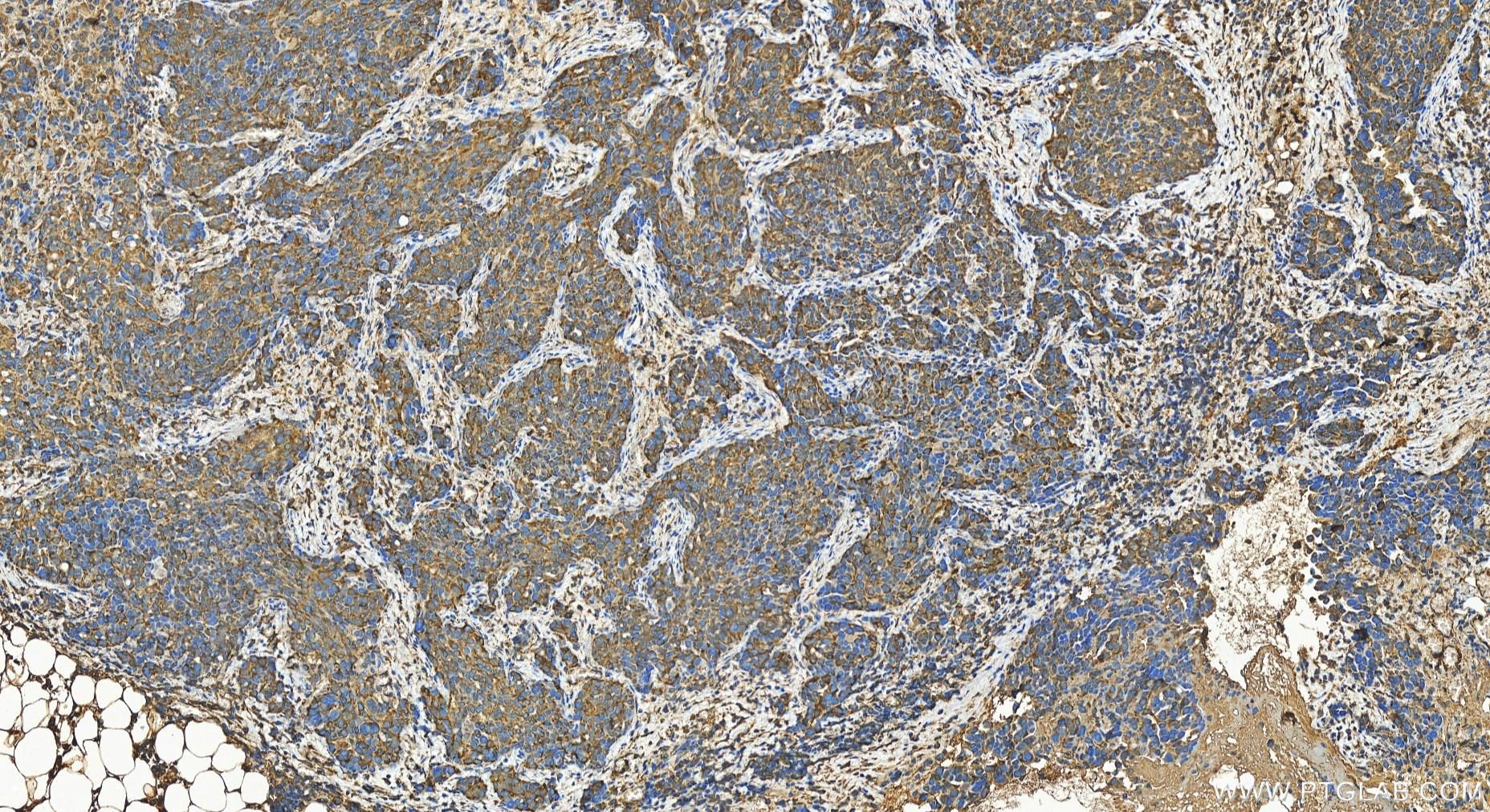TRANK1 Polyclonal antibody
TRANK1 Polyclonal Antibody for WB, ELISA
Host / Isotype
Rabbit / IgG
Reactivity
Human
Applications
WB, ELISA
Conjugate
Unconjugated
Cat no : 27583-1-AP
Synonyms
Validation Data Gallery
Tested Applications
| Positive WB detected in | Raji cells |
Recommended dilution
| Application | Dilution |
|---|---|
| Western Blot (WB) | WB : 1:500-1:1000 |
| It is recommended that this reagent should be titrated in each testing system to obtain optimal results. | |
| Sample-dependent, Check data in validation data gallery. | |
Product Information
27583-1-AP targets TRANK1 in WB, ELISA applications and shows reactivity with Human samples.
| Tested Reactivity | Human |
| Host / Isotype | Rabbit / IgG |
| Class | Polyclonal |
| Type | Antibody |
| Immunogen | TRANK1 fusion protein Ag26206 |
| Full Name | lupus brain antigen 1 |
| Calculated Molecular Weight | 336 kDa |
| Observed Molecular Weight | ~330 kDa |
| GenBank Accession Number | NM_014831 |
| Gene Symbol | LBA1 |
| Gene ID (NCBI) | 9881 |
| Conjugate | Unconjugated |
| Form | Liquid |
| Purification Method | Antigen affinity purification |
| Storage Buffer | PBS with 0.02% sodium azide and 50% glycerol pH 7.3. |
| Storage Conditions | Store at -20°C. Stable for one year after shipment. Aliquoting is unnecessary for -20oC storage. 20ul sizes contain 0.1% BSA. |
Background Information
Etratricopeptide repeat and ankyrin repeat containing 1 (TRANK1), has been confirmed as the susceptibility gene for BD (bipolar disorder). An integrated analysis of mRNA co-expression networks revealed that genes highly correlated with TRANK1 were significantly involved in the biological processes related to synaptic plasticity, dendritic spine, axon guidance and circadian rhythm. In addition, TRANK1 rs71947856 variant was associated with circadian regulation and Kleine-Levin syndrome, which is a rare disease characterized by severe episodic hypersomnia, with cognitive impairment and apathy or disinhibition.(PMID: 34014031)
Protocols
| Product Specific Protocols | |
|---|---|
| WB protocol for TRANK1 antibody 27583-1-AP | Download protocol |
| Standard Protocols | |
|---|---|
| Click here to view our Standard Protocols |



